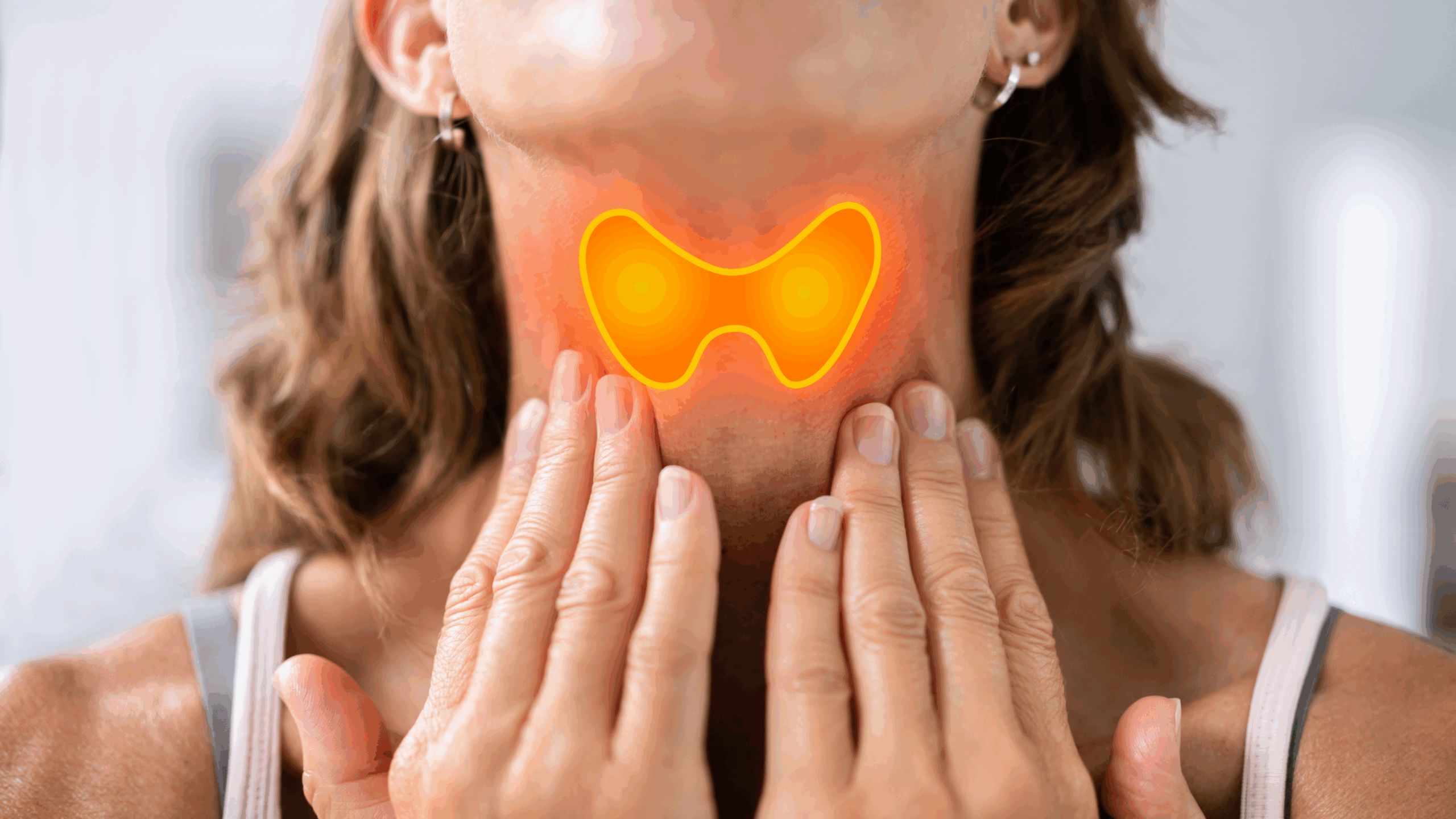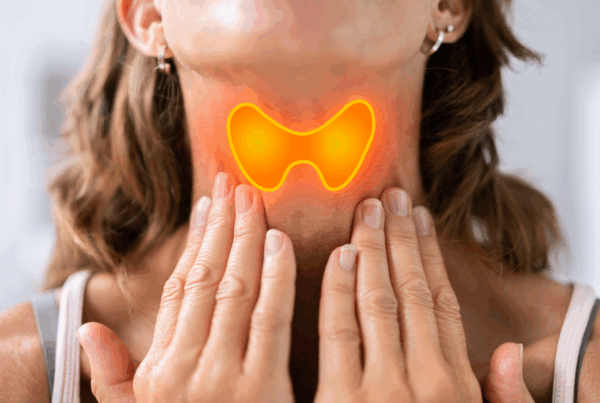Thyroid health is an increasingly important public health issue as rates of hypothyroidism and other thyroid disorders rise worldwide. Many people struggle to find effective, safe, and natural solutions for thyroid hormone imbalances. While pharmaceutical medications have long been the standard treatment, emerging evidence suggests that combining natural strategies, such as iodine-rich foods and iodine supplements like Systemic Formulas’ TMI, can provide a safe and holistic approach to supporting thyroid health.
Let’s explore why iodine deficiency is making a comeback, how it affects thyroid health, and how incorporating iodine through diet and supplementation could be the solution you’ve been looking for. We’ll also examine how genetics and environmental factors compound the issue.
Why Thyroid Hormone Imbalance is on the Rise
Thyroid hormone imbalances are more common than you might think. The thyroid hormones, Thyroid Stimulation Hormone(TSH), Triiodothyronine (T3), and thyroxine(T4), act as the body’s metabolic regulators, controlling energy levels, mood, weight, body temperature, and heart rate. When the thyroid fails to produce sufficient amounts (hypothyroidism) or produces too much (hyperthyroidism), the body can suffer a range of symptoms, including fatigue, weight gain, hair loss, mood swings, and more.1,5
Causes of Thyroid Dysfunction
Thyroid dysfunction has many contributing factors, including:
- Autoimmune diseases: Hashimoto’s thyroiditis and Graves’ disease are autoimmune causes of thyroid dysfunction.
- Radiation exposure and stress: These environmental triggers can alter thyroid hormone production.
- Genetic predisposition: Certain genes and SNPs (single nucleotide polymorphisms) make some individuals more vulnerable to imbalances.
- Dietary changes: Iodine deficiency stands out as one of the most common and preventable contributors to hypothyroidism.
Environmental factors, like overconsumption of processed foods, desalinated water, and a reduction in iodized salt usage, have led to widespread iodine deficiency.3 Low-sodium and restricted diets are also contributors to declining iodine levels, leaving many vulnerable to thyroid imbalance.
Genetics and Thyroid Health: The Role of SNPs and Your DNA
While iodine deficiency is a key driver of thyroid issues, genetics and single nucleotide polymorphisms (SNPs) also play a significant role in thyroid health. SNPs are tiny variations in your DNA that can influence the thyroid’s ability to regulate hormone production and immune response.
Key Genes Linked to Thyroid Health
Genetic factors that impact thyroid function include:
- Thyroglobulin (TG) Gene Variants: Variants in the TG gene can impair the thyroid’s ability to synthesize T3 and T4.
- Thyroid-Stimulating Hormone Receptor (TSHR): SNPs, such as rs12101255 and rs179247, can impair hormone regulation.
- Human Leukocyte Antigen (HLA): Variants in these HLA genes are tied to autoimmune responses like Hashimoto’s and Graves’ disease.
- Deiodinase Variants (DIO1, DIO2, DIO3): SNPs like DIO1 rs11206244 and DIO1 rs2235544, affect the conversion of T4 into the active hormone T3.
- Vitamin D Receptor (VDR) SNPs: Thyroid function is linked to vitamin D levels, and variations in these genes, like VDR BsmI (rs1544410) or VDR Taq (rs731236), may impair balance.
Genetics not only affect a person’s likelihood of developing thyroid dysfunction but also influence how the body processes iodine and responds to iodine supplementation.2
Understanding genetic predispositions can help identify why some individuals struggle to regulate hormone levels, even when iodine intake is sufficient. Learn more about your genetic predispositions with Alimentum Labs’ MY DNA test kit.
Understanding Iodine and Its Role in Thyroid Health
Iodine is a vital mineral required for the production of thyroid hormones T3 and T4. Without sufficient iodine, the thyroid cannot regulate metabolic processes properly, leading directly to hypothyroidism and other thyroid-related health issues.2,5
The body’s iodine balance is crucial. Too little can impair hormone production, while too much can lead to autoimmunity or other thyroid dysfunctions.4
Iodine’s Role in Thyroid Autoimmune Disease
Research indicates that both iodine deficiency and excess can trigger immune responses leading to thyroid diseases like Hashimoto’s thyroiditis and Graves’ disease. When iodine levels are normalized through diet and supplementation, studies show improved hormone production, immune balance, and reduced inflammation.4
How Iodine Supplements + Iodine-Rich Foods Work Together
To maintain healthy iodine levels and thyroid balance, combining iodine-rich foods with supplements provides a synergistic effect that can improve hormone regulation and immune response.
Iodine-Rich Foods to Add to Your Diet
These natural, food-based sources are packed with bioavailable iodine:
- Seaweed: Kelp, nori, and dulse are powerful sources of iodine. (Both kelp and dulse are found in TMI.)
- Seafood: Cod, salmon, shrimp, and other oceanic fish are iodine-rich options.
- Eggs: Nutrient-rich and an easy addition to any diet.
- Dairy Products: Milk, cheese, and yogurt are rich in iodine.
- Iodized Salt: A quick and simple way to meet your iodine needs.
Iodine Supplements: When Dietary Sources Aren’t Enough
Sometimes dietary adjustments may not fully address iodine needs—this is when supplements like TMI can help:
- When dietary sources are insufficient or restricted.
- For pregnant or lactating individuals who have higher iodine requirements.
- For those living in areas with limited access to iodine-rich foods.
However, too much iodine can lead to side effects like thyroid dysfunction, so always consult with your healthcare provider before starting iodine supplements.
How to Find the Right Balance
The World Health Organization (WHO) recommends 150-300 micrograms of iodine daily, depending on age, life stage, and health conditions.3 To maintain balance:
- Incorporate iodine-rich foods into your daily diet.
- Consult your healthcare provider about iodine supplementation when needed.
- Monitor iodine levels regularly to prevent deficiency or excess, especially if you have underlying thyroid disease or genetic predisposition to thyroid dysfunction.
The Bottom Line: A Holistic Approach to Thyroid Health
Restoring thyroid health doesn’t have to rely solely on pharmaceutical treatments. Combining iodine-rich foods with appropriately dosed iodine supplements offers a natural and effective way to support hormone production, immune balance, and overall thyroid function.
By adopting this dual approach—adjusting diet and supplementing wisely under medical guidance—you can give your body the tools it needs to thrive.
Your thyroid does a lot of work behind the scenes. Support it with balanced iodine intake, mindful choices, and testing when necessary. With the right steps, optimal thyroid health is within reach.
References
- Chaker, L., Bianco, A. C., Jonklaas, J., & Peeters, R. P. (2017). Hypothyroidism. Lancet (London, England), 390(10101), 1550–1562. https://doi.org/10.1016/S0140-6736(17)30703-1
- Chiovato, L., Magri, F., & Carlé, A. (2019). Hypothyroidism in Context: Where We’ve Been and Where We’re Going. Advances in therapy, 36(Suppl 2), 47–58. https://doi.org/10.1007/s12325-019-01080-8
- Hatch-McChesney, A., & Lieberman, H. R. (2022). Iodine and Iodine Deficiency: A Comprehensive Review of a Re-Emerging Issue. Nutrients, 14(17), 3474. https://doi.org/10.3390/nu14173474
- Kalarani, I. B., & Veerabathiran, R. (2022). Impact of iodine intake on the pathogenesis of autoimmune thyroid disease in children and adults. Annals of pediatric endocrinology & metabolism, 27(4), 256–264. https://doi.org/10.6065/apem.2244186.093
- Zamwar, U. M., & Muneshwar, K. N. (2023). Epidemiology, Types, Causes, Clinical Presentation, Diagnosis, and Treatment of Hypothyroidism. Cureus, 15(9), e46241. https://doi.org/10.7759/cureus.46241






